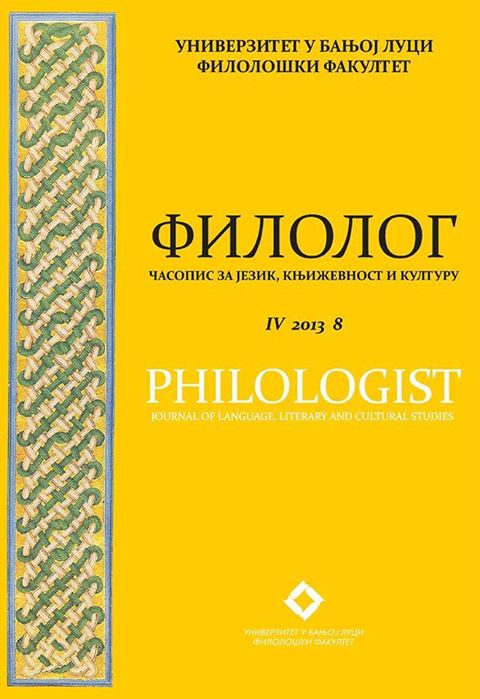L’assimilation latino-troyenne dans l’Enéide et son enjeu identitaire
Latin-Trojan Assimilation in The Aeneid and its Identity Stake
Author(s): Fabien DubouchetSubject(s): Language and Literature Studies, Literary Texts, Studies of Literature, Philology, Theory of Literature
Published by: Филолошки факултет Универзитета у Бањој Луци
Keywords: Aeneid; Virgil; Trojans; Latinus; Amata; identity; otherness.
Summary/Abstract: The Latins and the Trojans define each other through several motives, such as spatial (Italian territory), genealogical (Dardanians) and cultural (religion, oral literature), until the separation dynamics commences. The narrator presents this dynamics as an irrational and monstrous shift. The idea of similarity between the Latins and the Trojans is presented through the double positive heritage of the Romans. In this sense, Virgil constructed his epopee very deftly: logically, the two peoples have to be similar, because after Aeneas and Lavinia's wedding they will assimilate each other and produce a unique identity, the identity of the Roman people to which this literary work of art is dedicated. Against the identity of these two peoples, which attract and mirror each other, there will be the Other that will inevitably be the figure of disunion and chaos between the Similar ones. If the Roman culture, which characterizes everything that is non-Roman as barbaric, considered the Otherness to be human category, it seems that the enlargement of the Empire and Augustus' project of cohesion favour this conceptual transposition that Virgil accomplished by replacing the character of Otherness with hostile behaviour and chaos. That way the analysis discovers in which way the political aim exists at the basis of the poetic approach: the process of Latin and Trojan identification confirms the principle of union which is necessary for the stability of the Empire and gives it importance.
Journal: Филолог – часопис за језик, књижевност и културу
- Issue Year: 2013
- Issue No: 8
- Page Range: 246-255
- Page Count: 10
- Language: French

